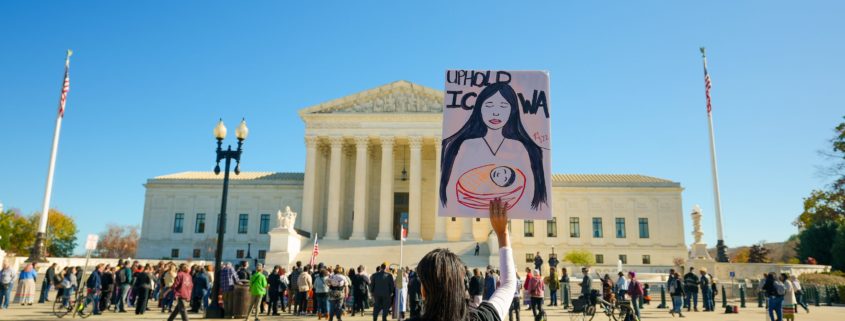Indigenous Peoples at COP27: Critiques, Challenges, and Wins
Authored by Veronica Limeberry.
During the negotiations at COP27, Indigenous peoples ensured their presence and voice on the world stage. On November 6, the International Indigenous Peoples Forum on Climate Change (IIPFCC) presented their opening statement to the COP, given by youth representative Nourene Ahmat Yaya from Chad. The statement emphasized that “climate change is a matter of life and death” and that limited actions from institutional leaders are not solving today’s threats. Furthermore, a key emphasis was on Indigenous People’s rights as “inherent, collective, and internationally recognized” and central to address environmental crises arising from climate change. The statement, and following events led by Indigenous leaders from around the globe, centered on the goal of committing “to real solutions based on [Indigenous] knowledge, practices and time-tested sciences, and the full exercise of our rights, at the United Nations and in our own territories.” While COP26 invited Indigenous voices to the main tables of negotiations, many feel that COP27 let down Indigenous peoples.
The Indigenous Environmental Network released a statement proclaiming that “While there was an acknowledgement of the rights of Indigenous Peoples as well as a recognition of the important role Indigenous Peoples have in addressing and responding to climate change in the preamble of the Sharm El Sheikh Implementation Plan, there is no other reference to Indigenous Peoples, Traditional [Indigenous] Knowledge, Indigenous Peoples’ rights or human rights in any other text, and instead replaced with references like “social and environmental safeguards.”
Meanwhile, from the United States, activist Big Wind from the Northern Arapaho tribe, among others, had their accreditation revoked after a peaceful protest during Biden’s speech. Wind says in an interview with The Guardian, “This is a clear example of radical Indigenous people and youth being silenced, we’re muted when we try to express our frustration in these spaces. It shows the UN’s true colours.” However, some wins include the agreement for ‘loss and damage’ funds pushed for by IIPFCC and others for vulnerable nations impacted by climate disasters. IIPFCC cautions in their position statement on COP 27, that “to avert loss and damage…the full and effective participation of Indigenous Peoples in addressing and responding to climate change, in compliance with the rights of Indigenous Peoples, is essential.”



Leave a Reply
Want to join the discussion?Feel free to contribute!